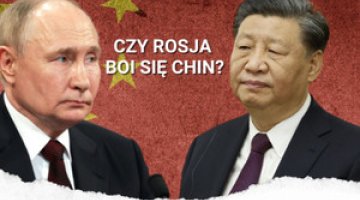Summit and parade: Russia continues to support China’s ambitions
From 31 August to 3 September, Vladimir Putin visited the People’s Republic of China, where he took part in a summit of the Shanghai Cooperation Organisation (SCO) in Tianjin. He then travelled to Beijing for a military parade marking the anniversary of the end of the Second World War and Japan’s surrender, appearing as guest of honour. During his visit, Russia and China signed about 20 framework and technical agreements. The leaders of China, Russia and Mongolia also held a trilateral meeting on the sidelines of the summit. According to Gazprom, a ‘legally binding memorandum’ was signed with China’s CNPC for the construction of the Power of Siberia 2 gas pipeline, running from Russia through Mongolia to north-eastern China. The two sides also reportedly agreed to increase gas deliveries via existing pipelines by a total of 8 billion cubic metres a year. So far, however, the Chinese side has not confirmed any details of these gas agreements.
The summit served as a political demonstration aimed at the United States and the West. It showcased the effects of more than a decade of the SCO’s expansion. What began as a joint Chinese-Russian project to assert control over Central Asia has since evolved into another platform for rallying support behind China’s superpower ambitions. In effect, Russia has fully endorsed China’s vision of reshaping the global order and now treats it as a shared agenda. It has also recognised China’s aspirations to lead the countries of the Global South. In return, it has received continued political support, accompanied by the prospect of deeper political and economic cooperation, including a vague promise of increased natural gas exports to China.
Commentary
- At the SCO summit, with Russia’s backing, China launched a thinly veiled attack on the United States and its system of alliances. During the meeting, Chairman Xi Jinping announced the ‘Initiative for Global Governance’, designed to counter what he described as the ‘Cold War mentality, hegemonism, and protectionism’ by ‘respecting the sovereign equality of states, upholding the international legal order, and practising genuine multilateralism.’ A similar message was included in the Tianjin Declaration issued by the SCO Council of Heads of State during the summit. On China’s initiative, a series of agreements were also adopted as part of the SCO Development Strategy until 2035. The key priorities include strengthening regional security, combating terrorism and extremism, and promoting economic integration, with particular focus on transport, energy, and information technologies. According to China’s Foreign Minister Wang Yi, this constitutes a ‘ten-year plan to build a multipolar world.’
- The shared historical narrative about the Second World War, which credits victory over the Axis powers to the joint struggle of the Soviet Union and the Chinese Communist Party in China, is intended to justify the ambitions of China and Russia to reshape the international order. It aims to delegitimise the global system created by the United States and its allies by downplaying, or even denying, their major contribution to the Allied victory. It also serves as a propaganda foundation for the de facto Chinese-Russian alliance, sending a message to audiences in both countries that are sceptical of closer bilateral ties. The shared narrative of a ‘brotherhood sealed with blood’ confirms the growing propaganda coordination between the two countries, reflected in the signing of several documents on cooperation between their media institutions. Moreover, it demonstrates the alliance’s durability, signalling that it cannot be broken despite hopes to the contrary within parts of the US establishment. The massive, perfectly orchestrated parade allowed China to showcase its state-of-the-art military capabilities, intended as further proof of the success of China’s model of modernisation, particularly for audiences in the Global South.
- Putin’s visit to China once again allowed him to demonstrate that Russia is not internationally isolated. The size of the Russian delegation – which included two deputy prime ministers, ten ministers, the heads of state-owned corporations, and business representatives – underscored the importance Russia attaches to its relationship with China. At the same time, the Kremlin sent a veiled signal to Washington, hoping to extract greater concessions from the United States, which remains concerned about Russia’s growing dependence on China. Russia also welcomed the warming of relations between China and India (Indian Prime Minister Narendra Modi met Putin on the sidelines of the summit). In light of recent tensions in India-US relations, this development provides Russia with an opportunity to reverse, at least temporarily, the negative trajectory in its ties with India (see ‘The twilight of the Russian-Indian strategic partnership’). The decision to invite Kim Jong Un and to place him second only to Putin on the list of honoured guests at the parade was a clear signal that China has accepted the deepening cooperation between Russia and North Korea (see ‘Acceptance regardless of the costs: China’s stance on the Russia–North Korea alliance’).
- Russian reports on the Power of Siberia 2 gas pipeline have created the impression of progress in negotiations while concealing the actual lack of tangible economic benefits. Russia and China signed more than 20 agreements on cooperation in areas such as energy, agriculture, and space research, but these have limited economic significance. Despite claims by Gazprom CEO Alexei Miller (which China has not confirmed), the negotiations on Power of Siberia 2 have likely failed to advance. Securing approval for this project is crucial for Russia, since China is the only customer capable of absorbing large volumes of gas (the pipeline is designed to transport 50 bcm annually) from West Siberian fields that supplied the European market before the war. If the pipeline enters operation in the 2030s, Gazprom’s exports could increase by nearly one third in volume, with sales to China doubling. The key issues, including the pricing formula and the distribution of investment costs, remain under discussion. The two sides have also failed to reach agreement on expanding banking cooperation, including the resumption of UnionPay operations in Russia and the acceptance of Mir payment cards in China. In what can be seen as a favourable gesture towards Russia, China announced that from 15 September it will introduce a one-year ‘trial’ visa-free regime for all Russian citizens; until now, the scheme has applied only to organised groups.





